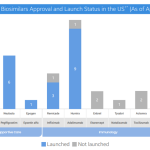There is an ongoing debate regarding the role of persistent infection, such as herpesvirus, in driving Alzheimer’s disease. Amyloid-β, an antimicrobial peptide, is part of the immune response, and elevated expression may lead to misfolding and aggregation, according to the amyloid cascade hypothesis. However, conflicting data suggests other factors may be at play. Research indicates a potential link between herpes simplex virus type 1 (HSV-1) and Alzheimer’s pathology, particularly in Aβ accumulation. Antiviral drugs may be beneficial in later life as a preventative measure. Further studies are necessary to better understand the interaction between viral infections and brain aging in the development of Alzheimer’s disease.
Recent findings suggest a connection between HSV-1 infection and Aβ accumulation in cognitively normal older adults. Increased anti-HSV IgG levels are associated with higher Aβ load in specific brain regions, with abnormal patterns of functional connectivity observed in individuals with high anti-HSV IgG levels. The relationship between anti-HSV IgG levels and Aβ deposition is moderated by the APOE4 genotype, a major genetic risk factor for AD. These results support the potential for antimicrobial therapy to reduce AD risk in aging populations.
Link: https://doi.org/10.1186/s13195-024-01437-4





